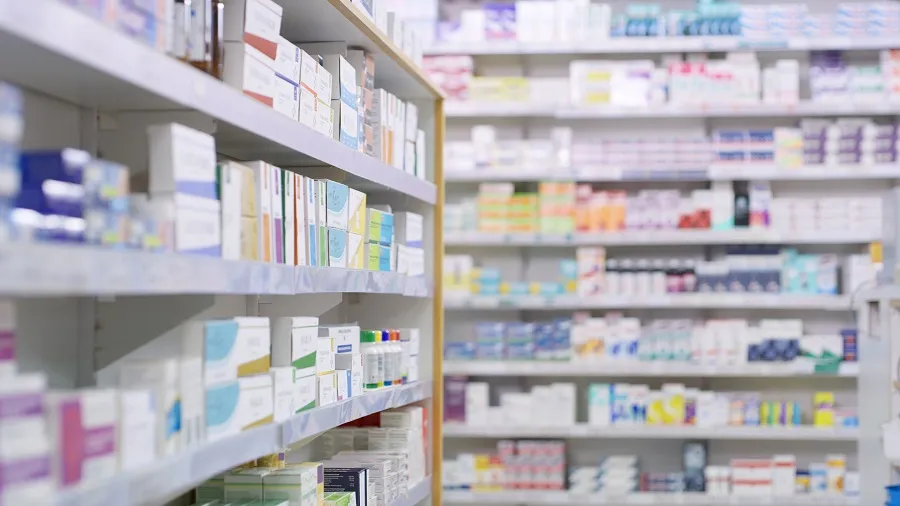
Antibiotic prescription was found to be high in hospitalised Covid-19 patients in the UK during the first wave of the pandemic, despite low rates of confirmed bacterial infection, the study shows.
Researchers say that their findings will help doctors make decisions around antibiotic prescribing for Covid-19 patients with suspected bacterial infection.
Antimicrobial resistance
Over-use of antibiotics contributes to the development of antimicrobial resistance – a situation where bugs no longer respond to medicines.
It is one of the great challenges of modern medicine, experts say, as it could render antibiotics ineffective, threatening the safety of surgery and reducing options for life-threating but treatable infectious diseases worldwide.
Difficult call
Antibiotics are only useful against bacteria, and not for diseases caused by a virus, such as Covid-19.
UK guidelines advise against antibiotic use for Covid-19 without specific evidence of bacterial infection, although this is always a difficult clinical judgement, especially in the context of a new disease with features distinct from more familiar viral diseases such as influenza.
The research from the International Severe Acute Respiratory and emerging Infections Consortium Coronavirus Clinical Characterisation Consortium (ISARIC-4C) found that 85 per cent of Covid-19 patients received one or more antibiotics during their hospital stay, with the highest use in critical care. More than a third of patients had been prescribed antibiotics before being admitted to hospital.
Bacterial infections
Confirmed bacterial infections in people with Covid-19 were uncommon, especially when they were first admitted to hospital. Most of the bacterial infections that did occur were secondary infections that were diagnosed more than 48 hours after admission.
This could change with the use of steroids and other drugs to treat Covid-19 that affect the immune system, and researchers say that ongoing surveillance will be required.
Secondary infection
The researchers also found that secondary infections in hospital were not specific to Covid-19 infection and more in keeping with those typically seen in hospital wards and intensive care units.
The study found a high use of broad-spectrum antibiotics – those active against a very wide range of bacteria. This could be reduced by prioritising existing principles of how to use antibiotics safely and conservatively, experts say.
Researchers say they are concerned about the use of broad-spectrum antibiotics in hospitalised patients with Covid-19 and its potential effect on antimicrobial resistance.
Call to help
They call for new approaches to help busy front line doctors identify patients who truly do require antibiotics, before laboratory results are available.
The study is published in The Lancet Microbe and was conducted in collaboration with the Universities of Glasgow and Liverpool and Imperial College London.
It was funded by The Medical Research Council (MRC), National Institute for Health Research (NIHR), the NIHR Health Protection Research Unit (HPRU), Wellcome Trust, and the Bill and Melinda Gates Foundation.
Bacterial chest and bloodstream infections are uncommon complications of Covid-19. This work identifies which bacteria tend to cause these infections when they do occur, helping clinicians to make a more informed choice about the best antibiotics to give people when needed. Our findings add granularity to our understanding of how antimicrobials have been used in the treatment of patients with COVID-19, and how antimicrobial usage could be optimised. Prioritising and incorporating existing antimicrobial stewardship principles into care plans could help to prevent a rise of drug-resistant infections becoming a longer-term sequela of the pandemic.
Dr Clark Russell
Clinical Lecturer in Infectious Diseases, University of Edinburgh
While some Covid-19 patients will require antibiotics, mostly for secondary infections which develop after admission to hospital, our data shows that not all Covid-19 patients should be prescribed antibiotics. The longer someone is in hospital, particularly if they are in critical care, the more vulnerable they are to develop secondary infections, and these should continue to be monitored. However, the bugs we identified are similar to those found in patients with hospital-acquired infection, and not specific to Covid-19.
Dr Antonia Ho
MRC-University of Glasgow Centre for Virus Research
We only have safe surgery and medical cures for many life threatening conditions because antibiotics were discovered and mostly still work. Overuse of antibiotics needs to be avoided to prevent emergence of resistance. When the current threat from Covid-19 subsides, the problem of antimicrobial resistance will remain a threat.
Professor Calum Semple
University of Liverpool
Related links
WHO Clinical Characterisation Protocol UK (CCP-UK)

